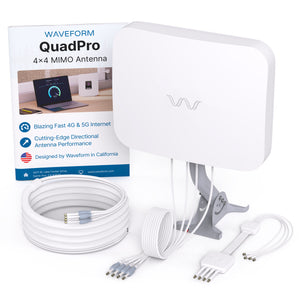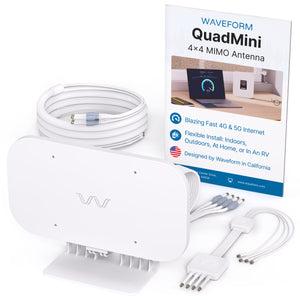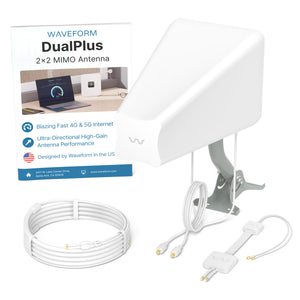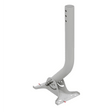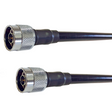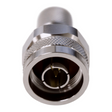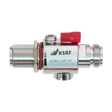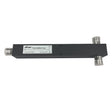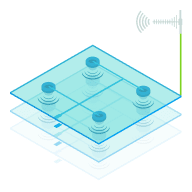Houston companies run some of the largest refineries, petro-chemical complexes and logistics yards in the country. These sites are noisy, expansive and often full of metal structures that weaken WiFi and public LTE signals. Downtime is expensive and security requirements are strict, so a network that you own and operate locally is far more attractive than fighting interference or paying per-line cellular fees.
Why Houston Operations Are Looking Beyond WiFi
Day-to-day production in Greater Houston involves miles of pipelines, rows of tank farms, automated cranes at the Port of Houston and countless distribution warehouses along Beltway 8. Traditional WiFi struggles in any environment that mixes large outdoor areas with dense indoor zones. Public cellular does not solve the problem either, because the commercial carriers:
- Charge per SIM, which becomes costly for thousands of scanners, sensors and handhelds
- Prioritize consumer traffic, so latency can spike during regional events or hurricanes
- Offer limited integration with your on-premise IT, which complicates data sovereignty and security audits
A private LTE or 5G network delivers wide-area coverage on Citizens Broadband Radio Service (CBRS) spectrum, letting you connect forklifts, autonomous robots, security cameras and voice handsets under a single, locally managed slice of spectrum.
For organizations outside Houston we also serve nearby markets, including Austin, Dallas, Fort Worth, San Antonio and the rest of Texas.
Industries And Sites That Benefit
- Energy and petro-chemical plants need intrinsically safe devices, blanket outdoor coverage and the ability to segment traffic for contractors. Private 5G supports all three.
- Port and intermodal yards depend on low-latency video backhaul for crane operators and AGVs. A single small-cell sector can cover dozens of acres at 50 Mbps or more.
- Hospitals within the Texas Medical Center face HIPAA constraints and cannot risk patient data crossing public networks. Operating a local core keeps traffic on campus.
- Large event venues like NRG Park need temporary but high-capacity connectivity. Our "network-in-a-box" kits can be racked and broadcasting in a single afternoon.
Heavy humidity, steel construction and frequent tropical storms make reliable radios even more important. CBRS runs at 3.55-3.7 GHz, a frequency sweet spot that penetrates walls better than WiFi 6E and supports higher power than legacy 2.4 GHz WiFi. Unlike a Distributed Antenna System, private 5G does not require carrier coordination or year-long permitting.
How Private 5G Works And Why It Beats Public Cellular
Private networks combine three elements:
- A cloud or on-premise EPC or 5G core that authenticates devices and routes traffic
- Small cells that act like miniature cell towers, each covering up to a 1.5 mile radius outdoors or 50,000 sq ft indoors
- SIM or eSIM devices such as gateways, handhelds, tablets and IoT sensors
Because you own the core, you decide Quality of Service tiers, network slices and security policies. Your traffic never leaves the local LAN unless you want it to. Compare that to AT&T, Verizon or T-Mobile, where packets hop through distant data centers, adding 30 ms or more of latency and exposing sensitive data to the public internet.
WiFi 7 will increase throughput but it still shares unlicensed spectrum with every apartment and coffee shop in Houston. More interference means more retries, which kills battery life and lowers effective capacity. Private 4G and 5G operate in lightly licensed CBRS or fully licensed spectrum, so you get predictable performance in both heavy rain and 100 °F summer heat.
For a deeper technical dive, see our Private Networks Guide.
Our End-To-End Design And Deployment Process
- Rapid Site Snapshot: You provide a floor plan or KMZ, your target coverage zones and an estimate of connected devices. Within three business days we return a budgetary range, candidate radio locations and high-level bandwidth projections.
- Detailed RF Modeling: After a limited-scope agreement we capture on-site signal readings, create a full propagation model and produce a bill of materials with multiple vendor options. Being vendor-agnostic, we might recommend Celona small cells, a Pente core and Zebra handhelds, or any combination that meets your objectives.
- Turnkey Build: Our technicians install the core, small cells, PoE switches and fiber backhaul. We integrate your chosen devices and run acceptance tests so you have day-one coverage.
- Ongoing Support: Remote monitoring, 24-hour SLA and quarterly optimization reports are included. Upgrade paths for Release 17 5G NR or new CBRS channel allocations are already mapped out.
This single-partner model eliminates finger-pointing. You will not juggle separate hardware providers, installers and MSPs just to keep scanners online.
Regional Experience You Can Trust
Waveform's track record in Texas includes a recent wireless deployment for Finisar, a semiconductor and optical component manufacturer about three hours up Interstate 45. The project covered nearly 700,000 sq ft of mixed office and clean-room space and delivered rock-solid signal top to bottom. That same methodology applies to private 5G, whether your facility is in Baytown or Sugar Land.
Budgeting For A Houston Private Network
Indoor private 5G typically runs between $1.00 and $2.50 per square foot turnkey, including design, equipment and installation. Outdoor coverage is even more cost-efficient. In flat terrain with existing fiber, a three-sector small-cell site can blanket a 1.5 mile radius for roughly $100,000 to $150,000, which is a fraction of what a comparable DAS or WiFi mesh would cost once you include maintenance and monthly carrier fees.
Because licensing, mounting height and backhaul vary, we always deliver a firm price with the Rapid Site Snapshot so you can secure budget approval quickly.
Next Steps
Waveform is the partner that delivers coverage, control and reliability without the complexity. Call us at (800) 637-4049 or get a custom private 5G design and quote today and see how simple a Houston private network project can be.























